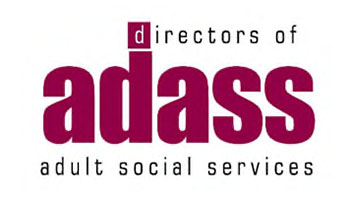CQC and ADASS are committed to continuing to work collaboratively to keep people safe and to give providers and their staff the support they need during the pandemic. This statement sets out what that will mean in practice.

CQC has established an Emergency support framework (ESF). The ESF provides a structured framework for the regular conversations that inspectors are having with providers, and provides CQC with an additional source of intelligence to help monitor risk, identify where providers may need extra support to respond to emerging issues, and ensure they are delivering safe care that protects people’s human rights.
A core part of the ESF process is to gather and record information from the conversations that CQC inspectors have with providers, as well as intelligence gathered from other sources. We want to explain how CQC and DASSs will work together, to assure you how the information we gather through the ESF will be treated.
- Information of concern
Where urgent concerns arise through the ESF, the process for sharing information remains unchanged – CQC will share relevant information with the DASS or their delegate, who will do likewise. Examples of this are safeguarding concerns or sudden drops in staffing. During this period, we recognise that there may be a greater risk of closed cultures developing in adult social care services, and that relatives, staff, social workers and providers themselves may find it harder to keep tabs on whether services remain safe for the people who use them and for staff. Where the ESF identifies such risks, these will be shared between CQC and local authorities.
If the situation is urgent there will be immediate conversations between CQC, the DASS and the provider concerned. Regular discussions, at least weekly, will take place between the CQC representative and the DASS to take an overview of safety, safeguarding and other key issues.
Where concerns arise (both urgent and non-urgent) through the ESF, CQC will feed these through to ADASS regional chairs and regional staff via Regional Incident Centres. This ensures that partner organsations across the system can consider and respond to the impacts on local systems and the community.
- ESF summary record
CQC will send providers an email with a summary of the conversation between the provider and the inspector as a record, which will be attached to an email in a PDF format. CQC won’t share the record with the local authority, but if support is needed as a result of that discussion they will contact the DASS. Providers can share the record with the local authority if they wish to, particularly if there is overlap with information that the local authority are asking for, or if they want or need to ask for help.
- Contacting providers
Both CQC and local authorities want to avoid adding to the burden on providers during this unprecedented time; nevertheless it is critical for us to have conversations and ask for information to ensure services are safe so that support can be given to providers and people using services where needed. To avoid overloading providers with too many information requests over a short period, where practicable, regional CQC managers will inform local authorities of the assessments planned for their area; frequency to be agreed locally. However, plans need to be flexible to emerging risk and/or new information.
- Supporting providers
All attempts will be made to support service continuity, and the safety of older and disabled people, staff and relatives. Depending on the concerns and the local context, support may take a variety of forms and may involve the CCG, NHS acute trust or other providers in the locality.
- Information sharing
CQC will share an overview of our findings at the local system level with local authorities. This will include best practice alongside any trends and other information at a systems level that is deemed useful to understanding the impact of the coronavirus pandemic. CQC will also use this information as part of its ‘independent voice’ work, such as its State of Care publication.
Broadly, we will continue to work in accordance with the established joint working protocol between CQC and the Association of Directors of Adult Social Services (ADASS).
We hope this gives you clarity and assurance on how we will use the information that providers share with CQC, and in what circumstances that information will be shared with local authorities. If providers need any further information on this, we encourage them to talk to their CQC inspector during their next ESF conversation.